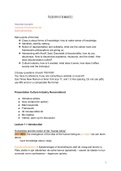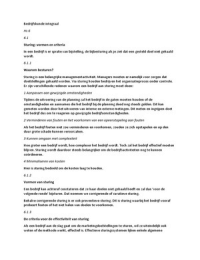Samenvatting
Summary All you will EVER need for: PHILOSOPHY OF THE HUMANITIES (1) (Lectures, Seminars, and Texts!!!)
- Instelling
- Universiteit Van Amsterdam (UvA)
Problems with being unprepared, last-minute or sleepy during class?!?! I GOT YOU! This is all you will ever need for the Philosophy of the Humanities (1) course :) You are welcome!
[Meer zien]







